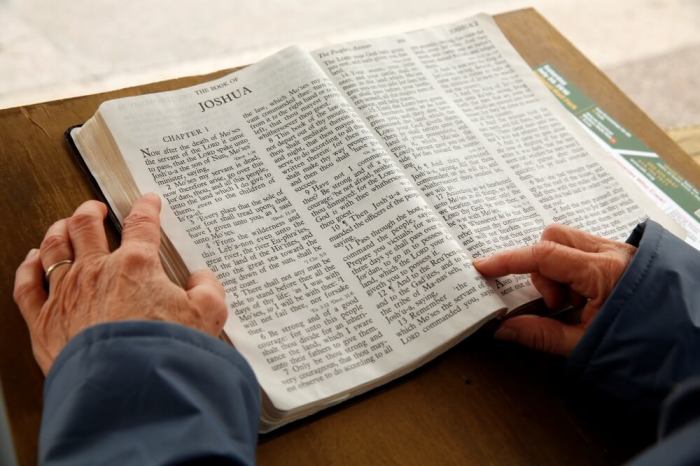More Americans Now Believe Bible Is a Book of Fables, Not Literal Word of God: Gallup

More Americans now believe that the Bible is a book of fables and history than those who believe it's the literal Word of God, a Gallup poll released Monday has found, and even fewer than a third of Christians say it's to be taken literally.
"Over the past three decades, Americans' view of the Bible as the literal Word of God has been declining, while their view that the Bible is a collection of fables, myths and history recorded by man has been increasing," Gallup observed about the poll, which was conducted of 1,011 American adults between May 3–7, with the margin of sampling error of plus or minus 4 percentage points at the 95 percent confidence level.
Among all sampled Americans, fewer than one in four, of 24 percent in total, said the Bible is "the actual Word of God, and is to be taken literally, word for word."
A slightly higher 26 percent said that the Bible is "a book of fables, legends, history and moral precepts recorded by man."
While another 47 percent said they believe the Bible is "inspired by God, not all to be taken literally," Gallup said it was the first time in its four-decade observations that biblical literalism has not surpassed biblical skepticism.
Belief in the Bible as the literal Word of God was lowest among young adults aged 18- to 29-year-olds, with 12 percent supporting such a view, and highest among the 50- to 64-year-olds, at 31 percent.
College graduate students were also less likely than those with some college and those with no college to take the Bible literally.
When it comes to Christians, Gallup recorded that 30 percent in total agree that the Bible is the literal Word of God, 54 percent said that it was inspired by God, and 14 percent offered that it was a book of fables.
The survey split the Christian category only into two groupings — Roman Catholics, 21 percent of whom backed the literal stance, and "Protestant/other Christian," at 35 percent.
"Americans in all age groups still largely accept the Bible as a Holy document, but most of these downplay God's direct role in it. That could mean people are more willing than in the past to believe it is open to interpretation — if man, not God, wrote the Bible, more can be questioned," Gallup analyzed.
"And that, in turn, may have consequences for where Americans come down on a number of morally tinged issues," it added.
"The country may already be seeing this in growing public acceptance of a variety of behaviors that were once largely frowned on from a Christian perspective — ranging from gay marriage and premarital sex to out-of-wedlock births and physician-assisted suicide."
LifeWay Research released another national survey about the Bible back in April, and found that only 20 percent of Americans have read the Bible in its entirety, though most held positive feelings toward it.
The poll showed that 10 percent of respondents had read none of the Bible at all; 13 percent only a few sentenced; 30 percent several passages or stories; 15 percent at least half the Bible; 12 percent almost all of it, and only 20 percent said that they had read the entire Bible.
Still, over half of respondents, or 52 percent, called it a "good source of morals." A little bit over a third further described it as a "historical account," "helpful today," "true," and "life-changing."
"Most Americans don't know first-hand the overall story of the Bible — because they rarely pick it up," Scott McConnell, executive director of LifeWay Research said in an earlier report.
"Even among worship attendees less than half read the Bible daily. The only time most Americans hear from the Bible is when someone else is reading it."



























